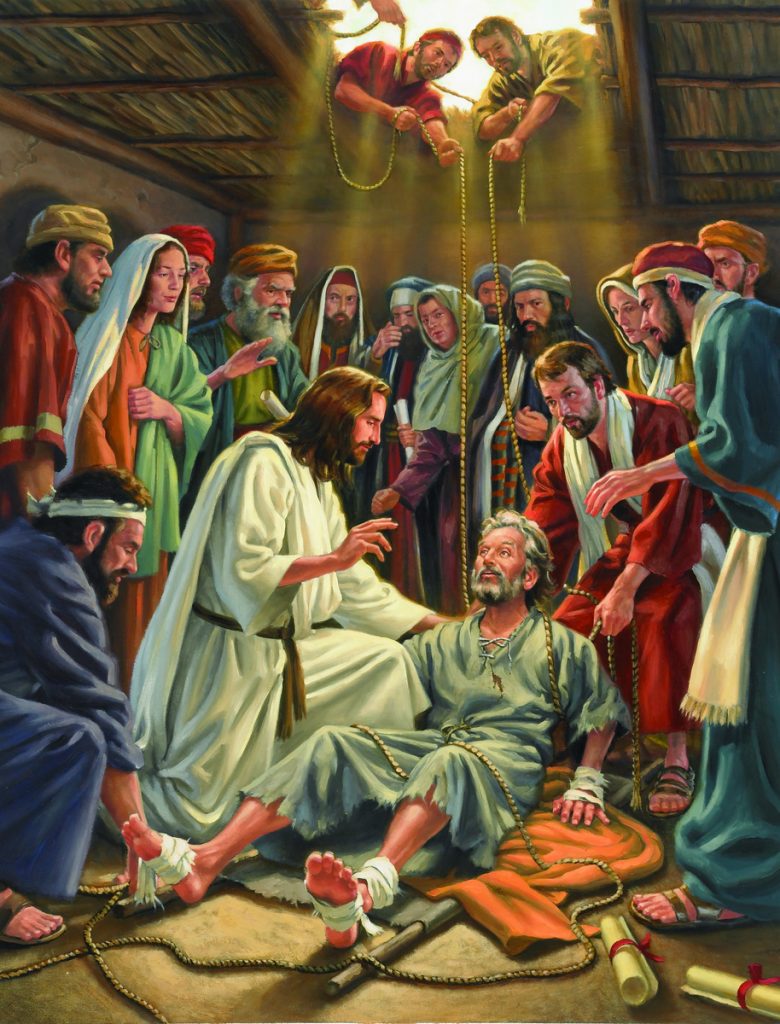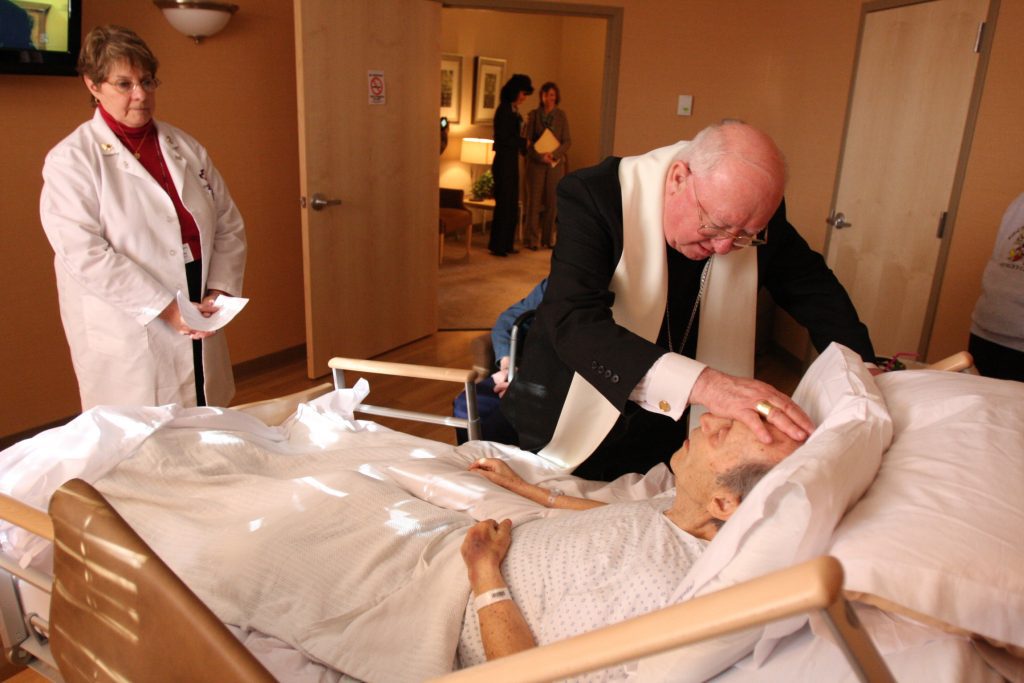For information about receiving the Anointing of the Sick for you or a loved one, please contact:

Director of Sacramental Services
Audrey Boston
Phone: 813-875-4040 Ext. 202
Email: aboston@stlawrence.org

The Sacrament’s Institution
Like all the sacraments, holy anointing was instituted by Jesus Christ during his earthly ministry. The Catechism explains, “This sacred anointing of the sick was instituted by Christ our Lord as a true and proper sacrament of the New Testament. It is alluded to indeed by Mark, but is recommended to the faithful and promulgated by James the apostle and brother of the Lord” (CCC 1511; Mark 6:13; Jas. 5:14-15).
The anointing of the sick conveys several graces and imparts gifts of strengthening in the Holy Spirit against anxiety, discouragement, and temptation, and conveys peace and fortitude (CCC 1520). These graces flow from the atoning death of Jesus Christ, for “this was to fulfill what was spoken by the prophet Isaiah, ‘He took our infirmities and bore our diseases’” (Matt. 8:17).
The Sacrament’s Effects
“The special grace of the sacrament of the Anointing of the Sick has as its effects: the uniting of the sick person to the passion of Christ, for his own good and that of the whole Church; the strengthening, peace, and courage to endure in a Christian manner the sufferings of illness or old age; the forgiveness of sins, if the sick person was not able to obtain it through the sacrament of penance; the restoration of health, if it is conducive to the salvation of his soul; the preparation for passing over to eternal life” (CCC 1532).
Does a person have to be dying to receive this sacrament? No. The Catechism says, “The anointing of the sick is not a sacrament for those only who are at the point of death. Hence, as soon as anyone of the faithful begins to be in danger of death from sickness or old age, the fitting time for him to receive this sacrament has certainly already arrived” (CCC 1514).

What actually happens during this sacrament?
If circumstances allow, the Sacrament of Reconciliation should be celebrated with the sick person prior to the Sacrament of Anointing. If not, there is a brief penitential rite within the introductory prayers.
The sacrament consists of readings from the Scriptures, the laying on of hands, the blessing of the oil and the anointing on the forehead and hands, the communal recitation of the Lord’s Prayer, and the dismissal. If the sick person is able to receive Communion, the Eucharist may be offered just after the Lord’s Prayer.
It is ideal if the family of the sick person can gather for this ritual. If done in a hospital, the staff also may be invited to participate. The presence of others assures us that the Church is present in prayer. If such presence is not possible, the sacrament can be administered with just the sick person and the priest present.
